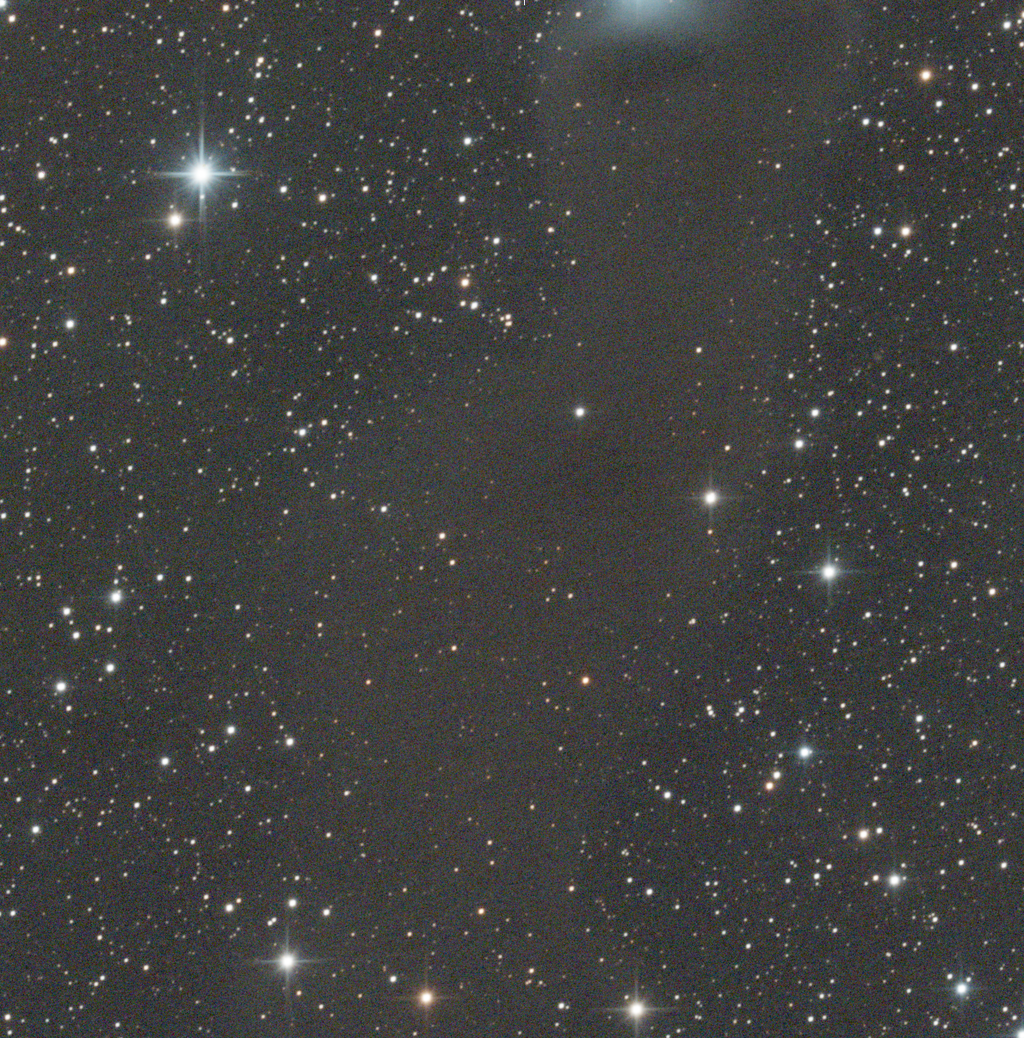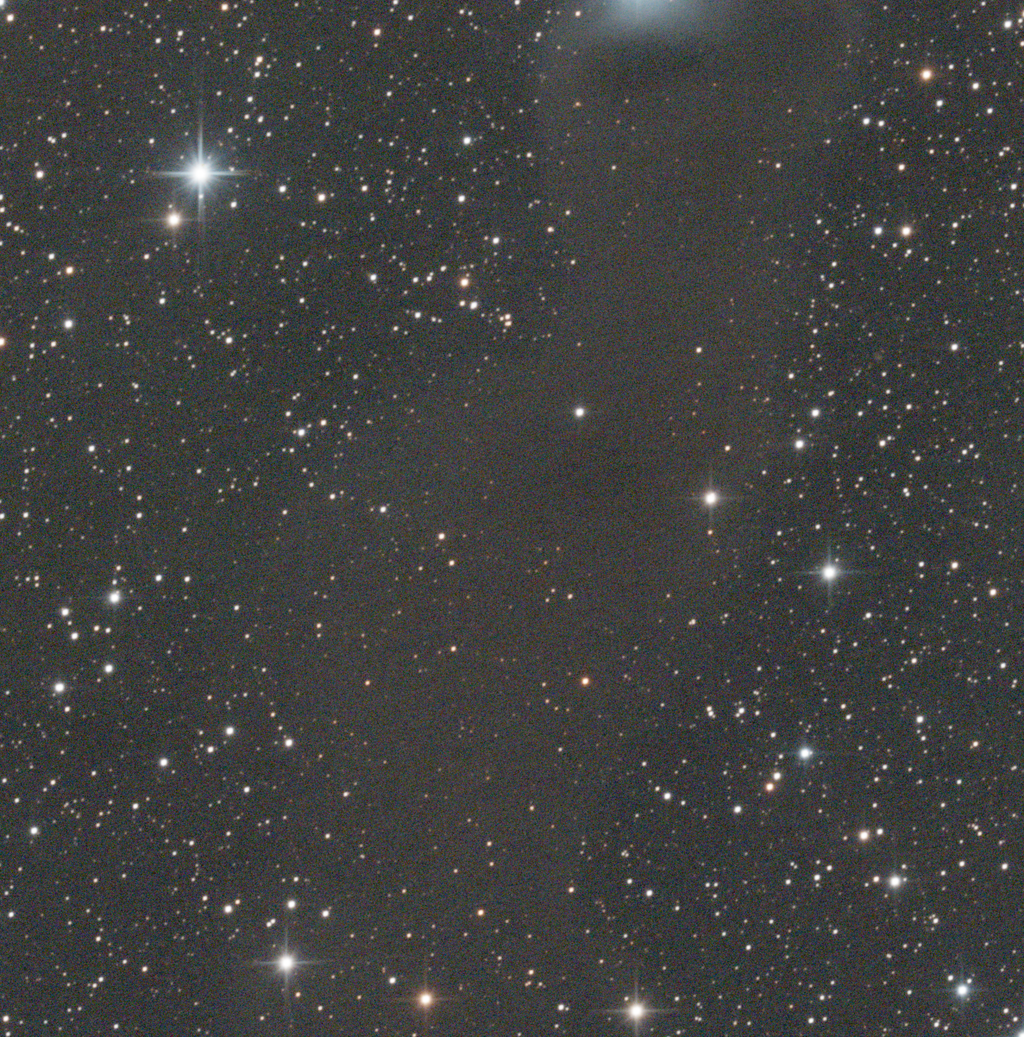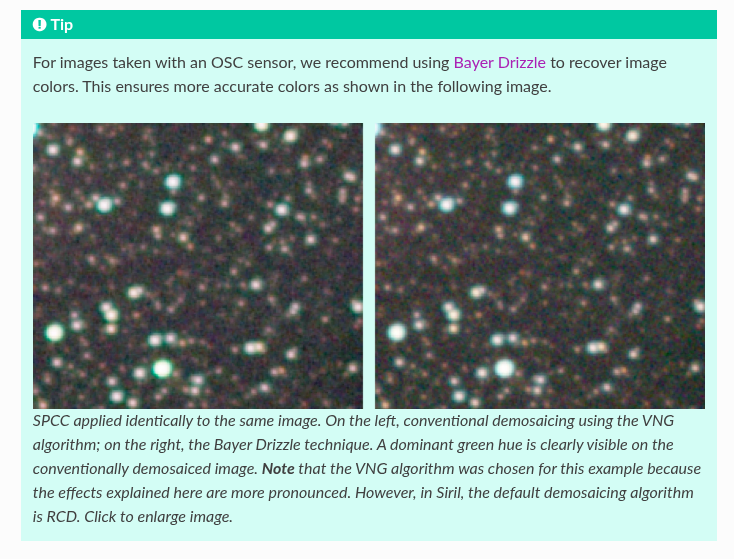What does drizzled ‘sufficiently’ mean? A few pixels every sub-frame?
By sufficiently, I was referring to a decent spread of dithers, as well as at least moving the stars a pixel or two on the imaging cameras sensor.
Drizzle is a weighted operation (which you can see by looking at the drizzle weighting map if you've got WBPP set up to produce it). Lets say you have 60 subs, with a dither operation between every subexposure, you will have a far better drizzle result than if you have 100 subs dithered every 3 subframes.
Drizzle is lossy, the more subs you feed it with more dither operations, the better the outcome will be. But essentially, with an OSC camera, if you want to run spcc, you need to have drizzled the data, which will cost you in terms of final SNR, so you're going to want more integration time than you would otherwise collect. And if you want to drizzle you'll want to be dithering by a reasonable pixel distance, and have a minimum (in my opinion) of 60 dithers in order to produce a good image.
If you're dithering every 3rd sub, then, by my reckoning, you want 180 sub exposures to drizzle cleanly. If you're dithering every frame, 60 subs will be enough for the weighting to work out reasonably well, but you may well run into a situation where your SNR is too heavily negatively affected.
I guess it comes down to 'For the best possible images with an OSC camera, you want a boatload of integration, lots of dithering operations throughout the image acquisition, drizzle (1x is fine, 2x if you're undersampled, if you're so heavily undersampled that you need greater than a 2x drizzle to reach ~1a-s/p, you should rethink your imaging train) and run SPCC (IF you think its necessary... As Andrea said, it really doesn't make THAT much difference unless your colour balance is absolutely shot!)





